Meet the Artist: Warren Miller
May 13, 2010
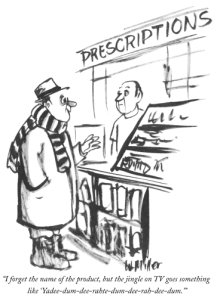
"I forget the name of the product, but the jingle on TV goes something like 'Yadee-dum-dee-rahte-dum-dee-rah-dee-dum.'"
TCB: When do you first remember being interested in drawing?
WM: When I was a little tiny person, my father was a commercial artist, and my grandfather was an engraver and also drew. I sent in my first cartoon to the Saturday Evening Post when I was around seven and a half. It was of a little Arabian boy outside a tent in the desert, with camels around, asking his father to build him a sandbox. And actually, many years later, Mischa Richter published a cartoon in The New Yorker that made a similar joke. Great minds think alike.
TCB: What other things do you remember drawing when you were young?
WM: I drew a lot of war things, and my cousin and I used to make comics.
TCB: When did you start to consider cartooning as a career?
WM: I had gone to college for commercial art for a year before transferring to another college. There I had a double major in art and anthropology, and was thinking of going into museum work. After I graduated, I was working at the post office (what do you do with a B.A.? You get a job at the P.O.), and I met this guy who had worked with the sculptor Henry Moore. I had sent some cartoons to Playboy in the past, so he said, “Why don’t you try submitting again?” So I started sending more work to other magazines, and out of the first batch I sent to Esquire, they bought some ideas.
TCB: What was the first cartoon you had published in The New Yorker?
WM: It was in 1961, and the cartoon showed a guy in a hospital bed, with a computer-type machine coming in with a hypodermic needle, and the guy screaming, “Oh God, no! Not here!”
TCB: What are some changes you’ve seen at The New Yorker since the beginning of your career there?
WM: In the old days, the cartoon editor’s office was the holiest of holies; you couldn’t just walk right in. When I was first at the magazine, some of the cartoonists had offices. I had one, and James Stevenson had an office down the hall from me – he did a lot of children’s books, and would draw maybe one a week.
TCB: Who are some of your favorite New Yorker cartoonists, past and present?
WM: I was always a Charles Addams fan. And I liked Frank Modell and Saul Steinberg. Of cartoonists working today, I like Roz Chast and David Sipress.
TCB: What advice would you give to an aspiring cartoonist?
WM: Persevere. If drawing is what makes you happy, you just have to find a way to do it.
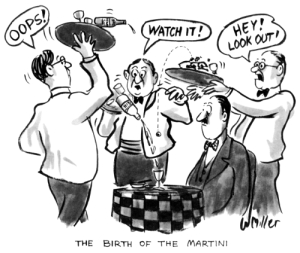
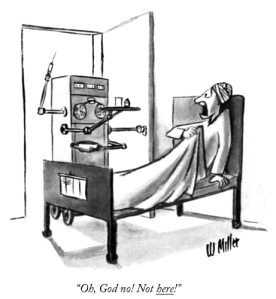
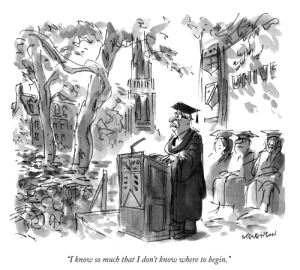
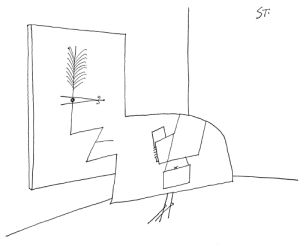

0 comments:
Post a Comment